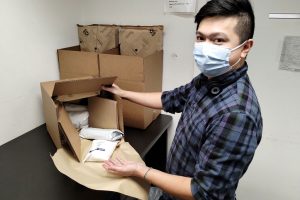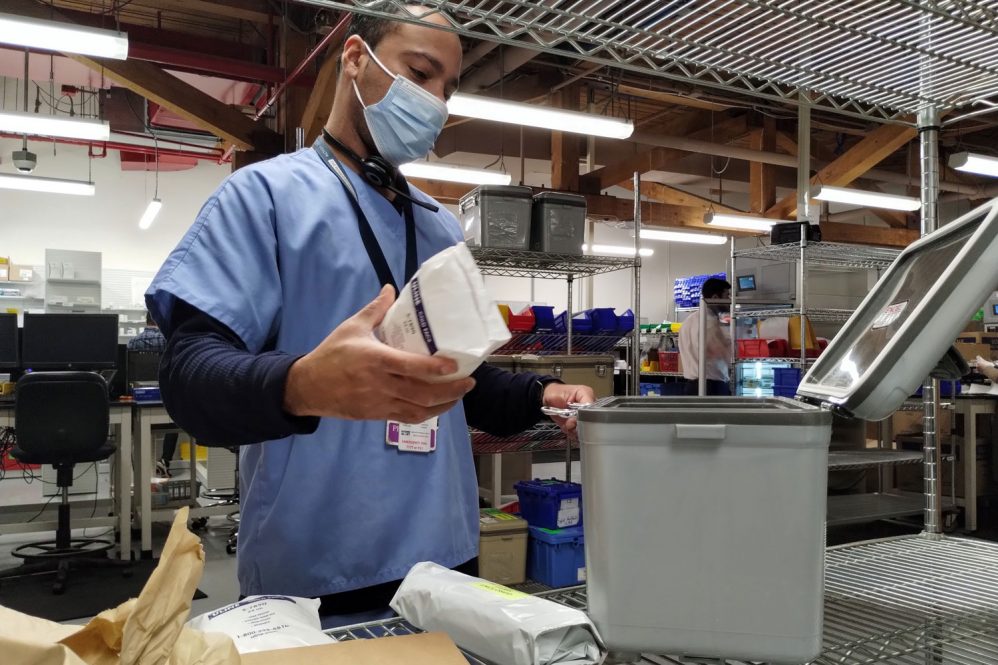UConn Health’s Specialty Pharmacy is reporting major environmental and economic gains a year after introducing reusable containers to for cold transport of medications.

Pharmacy Director Emmett Sullivan estimates the switch to the permanent coolers netted a savings of more than $112,000 in 2022.
“Just the amount of supplies that are coming into the pharmacy have dropped dramatically, not just in cost, but in volume,” Sullivan says. “We estimate that it would have taken 500 pallets of shipping supplies over the past year. We ordered about 25 pallets of single-use supplies, as opposed to 500 pallets.”
Previously, pharmacy staff would package the medication with disposable ice packs in cardboard shipping boxes. While they were made entirely of recyclable material, they were one-time use, and unless the recipient made the effort to recycle them, they would end up in the regular waste stream.
“We were having patients complain about the bulk of their packaging that they would have to dispose of at the time of receipt,” Sullivan says.
January last year came the switch to reusable coolers, which are durable enough to use over and over, and high-enough quality to maintain cold-chain transportation standards for several days. They’re sanitized for every trip and tested every quarter; not one has needed replacement yet.
The coolers cost about $100 each, compared to the $12 in materials for each single-use package.

“Within a month they’ve paid for themselves,” Sullivan says.
Only about 5% to 10% of deliveries still go out in single-use boxes now, for situations when the recipients can’t immediately put the medication in an appropriately refrigerated space. The drastic reduction in single-use packaging comes with added benefits: less dependence on the supply chain for materials, reduction of disposable ice pack consumption by 90%, and the freeing of square footage in the pharmacy area that used to be dedicated to housing the single-use packaging supplies. What used to take more than 1,200 square feet now takes about 150 square feet.
“It’s great to see these types of programs and initiatives taking root because it is those at the department level who understand their operations the best and can identify environmentally friendly solutions to incorporate in their day-to-day operations,” says Eric Kruger, UConn Health’s vice president for facilities development and operations, and chair of UConn Health’s sustainability working group. “Every piece of the puzzle makes a difference and I am grateful to our pharmacy for its engagement and successful implementation of such an impactful sustainability effort.”
With delivery by way of the reusable containers, the recipient is left with a single tamper-evident pouch containing the medication, and therefore only has what amounts to a snack chip bag’s worth of waste dispose of, rather than a cubic foot of packaging material for each delivery.
The pharmacy has more than 100 coolers, with 30 more on the way — not to replace any, but to add to them the accommodate the increased demand for deliveries.



